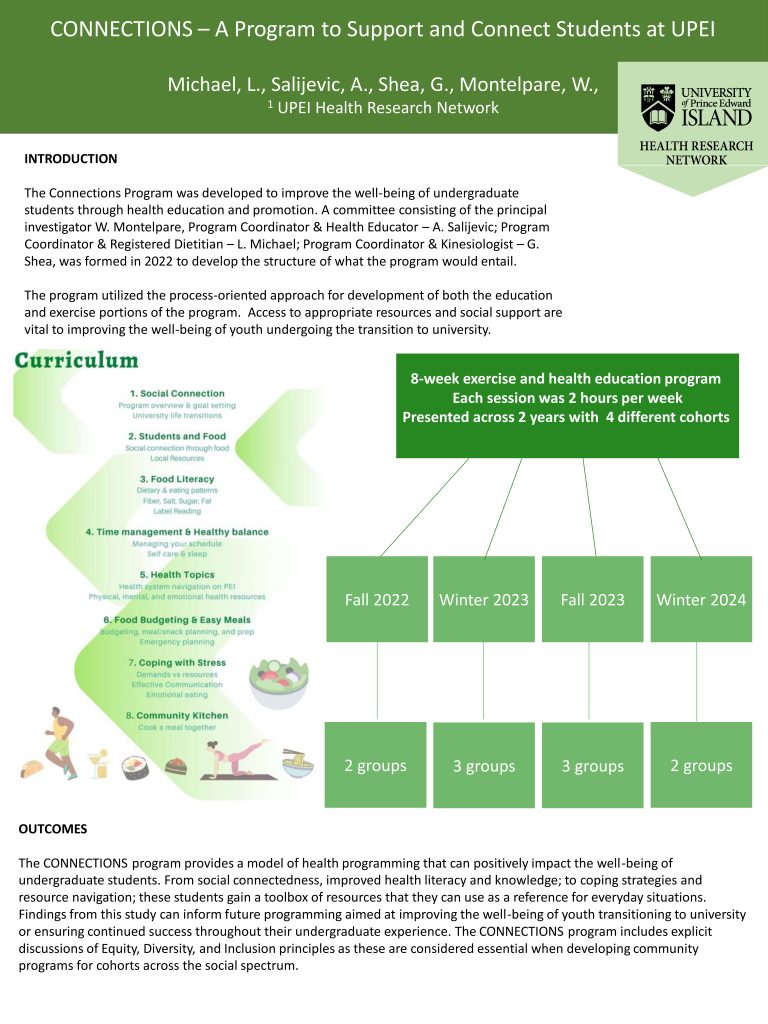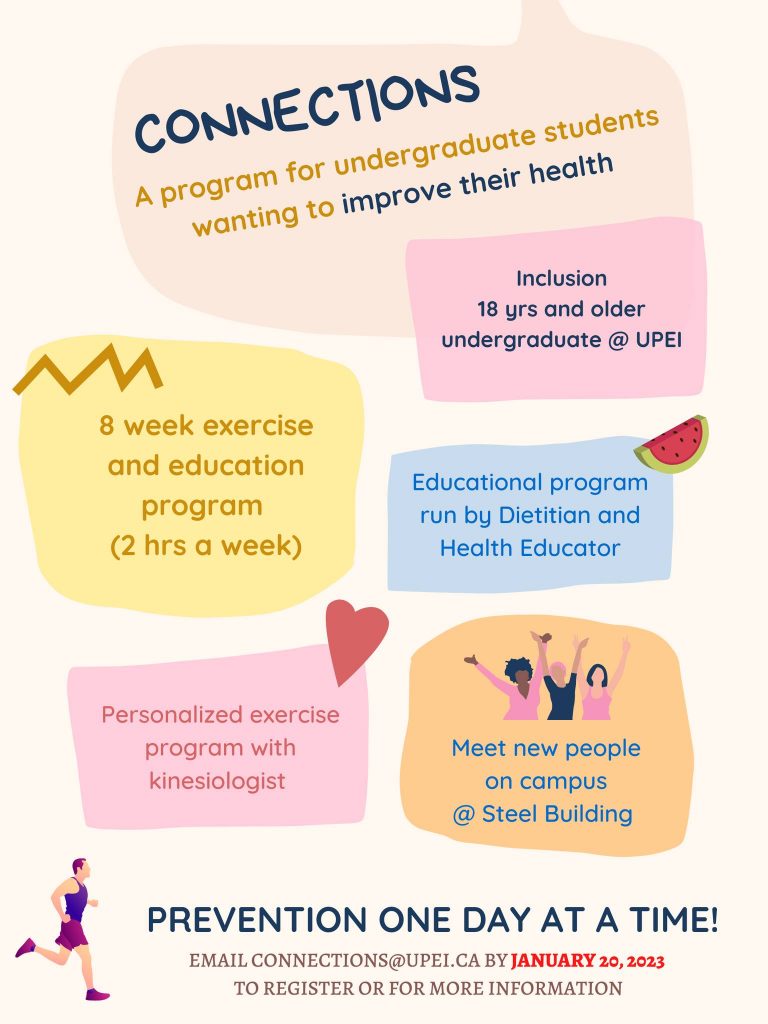Access to appropriate resources and social support are vital to improving the well-being of youth undergoing the transition to university. Social isolation, perpetuated by the COVID-19 pandemic, contributed to poor health outcomes in university students, necessitating responsive programming and support. The Connections for Healthy Living (Connections) program aims to improve the well-being of undergraduate students through health education and promotion.
The intervention was developed using a participatory learning model that consisted of exercise and education sessions offered over 8 weeks. Program content is delivered using principles of motivational interviewing, an approach to behaviour modification, on topics related to nutrition, preventative screenings, and health self-management. Participants are recruited through university bulletins and student organizations. Eligible participants included undergraduate students (>18 years) who screened positive on the Physical Activity Readiness Questionnaire. Outcomes of interest include perceived loneliness (UCLA Loneliness Scale), stress (Perceived Stress Scale), and health literacy. Data collection consisted of pre- and post-assessments.
The Connections program provides a model of health programming that can positively impact the well-being of undergraduate students. Future work includes scaling up the program and including physiological assessments of well-being. Findings from this pilot study can inform future programming aimed at improving the well-being of youth transitioning to university.


